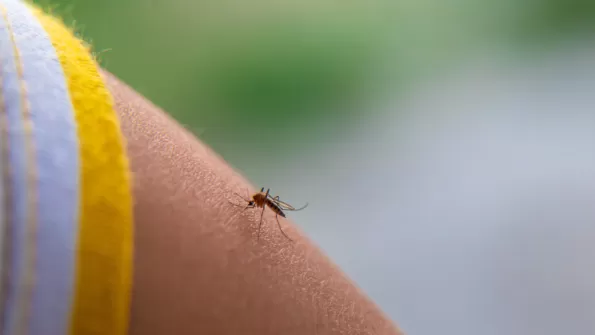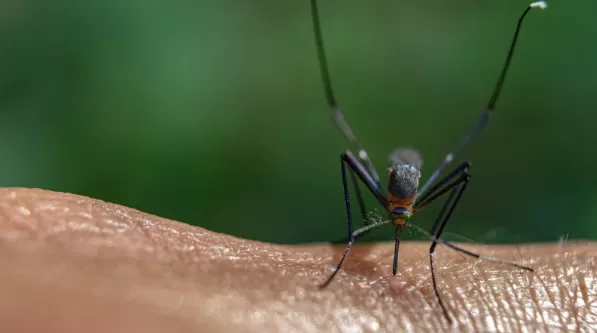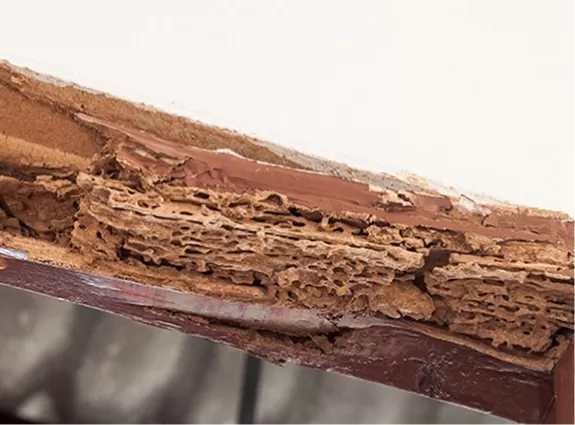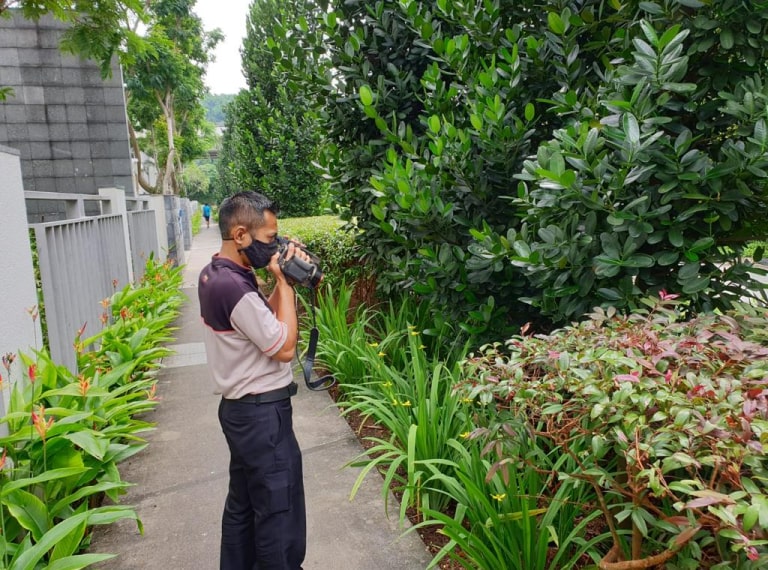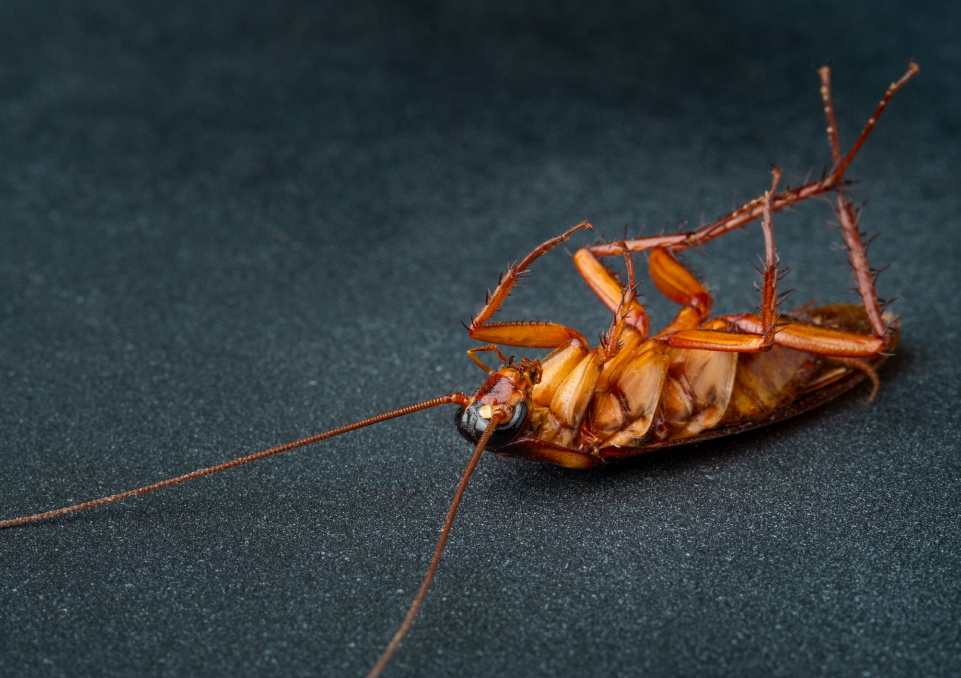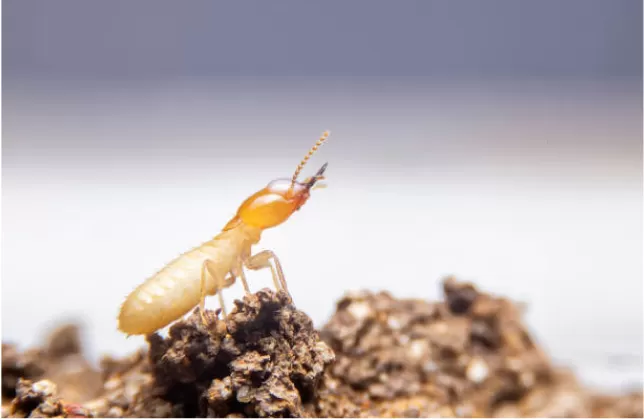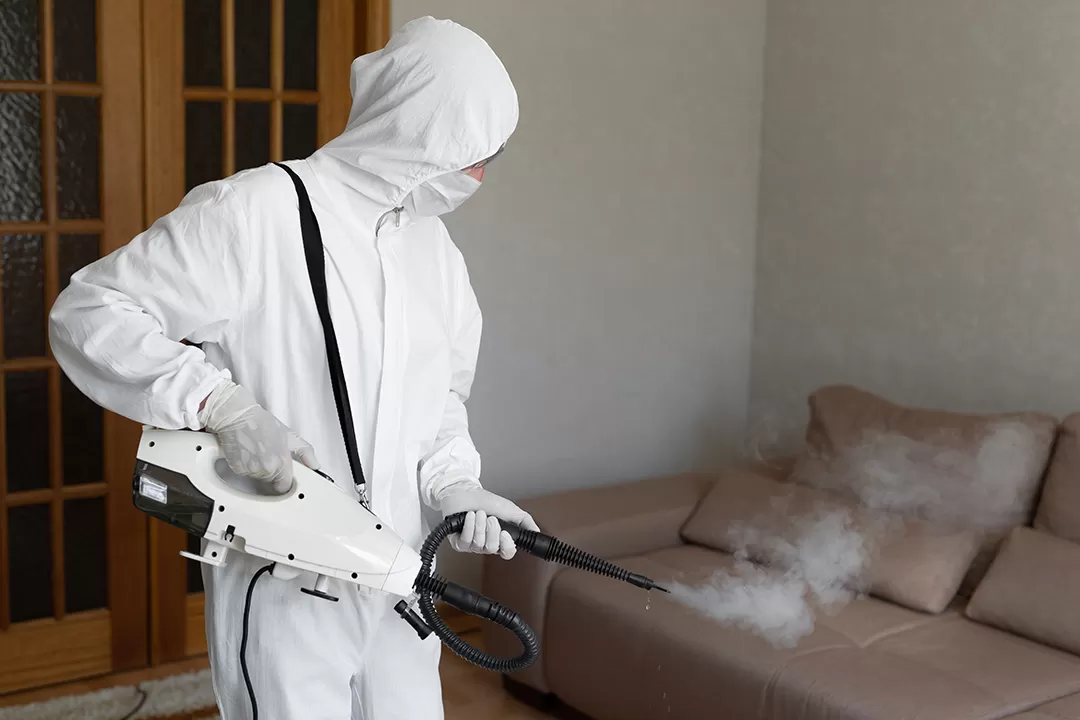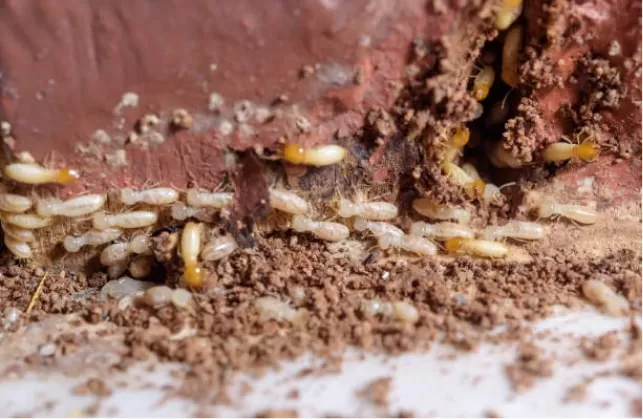As Singapore enters its rainy season, the arrival of refreshing showers also signals a noticeable increase in Singapore mosquito activity. Understanding the various factors that contribute to this surge is essential for effective pest management. Several elements, including heightened humidity, the presence of standing water, and the rapid life cycle of mosquitoes, play significant roles in their proliferation during this time. This article will delve into the reasons behind the increased Singapore mosquito populations during the rainy season and discuss how Aardwolf Pestkare can assist in keeping these pests at bay.
Key Takeaways:
- The rainy season in Singapore brings higher humidity levels, which attract mosquitoes to breed and thrive.
- Standing water from rain provides more breeding sites for mosquitoes, increasing their population.
- As rainwater can dilute pesticides, it may be less effective in controlling mosquito populations during the rainy season.
Higher Humidity Levels Attract Mosquitoes
High humidity levels provide an ideal setting for mosquito breeding, which in turn leads to a significant increase in the mosquito population, especially in tropical climates such as Singapore. This increase can exacerbate dengue transmission risks.
As humidity increases, the chances of experiencing mosquito bites also rise, raising concerns about the potential for dengue transmission and outbreaks in urban areas. Efforts to reduce the mosquito population become crucial.
Standing Water Increases Breeding Sites
Standing water is a significant breeding ground for mosquitoes, particularly the female Aedes mosquitoes, which lay their eggs in stagnant water, a known contributor to the risk of dengue transmission.
In urban settings, this can encompass a range of sources, from discarded containers to clogged drainage systems, which substantially contribute to the mosquito population. As these breeding sites increase, the risk of dengue outbreaks also rises, making it essential for households to implement effective mosquito control measures to minimize these risks.
Stagnant water is not the sole concern; various forms such as puddles, birdbaths, and even plant saucers can serve as ideal locations for mosquito larvae. Understanding the lifecycle of mosquitoes is crucial for effective control. These insects progress through four stages: egg, larva, pupa, and adult. Each stage can develop quickly under favorable conditions, resulting in significant population growth within a matter of weeks.
Homeowners play a vital role in reducing breeding sites by incorporating control measures like:
- Regularly emptying and cleaning containers that hold water.
- Ensuring gutters are unclogged.
- Properly maintaining any water features or ponds.
- Using larvicidal treatments in larger water bodies.
However, individual efforts alone are insufficient; community awareness initiatives are essential. Neighborhood programs can educate residents about coordinated actions to eliminate mosquito breeding grounds, fostering a collective response to combat these pests.
Rainwater Can Dilute Pesticides
Rainwater can significantly dilute the pesticides used for Singapore mosquito control, which reduces their effectiveness in addressing the growing mosquito population. This dilution may impede the ability of pest management solutions to fully eradicate populations of Aedes aegypti mosquitoes and other species that thrive during the rainy season.
Therefore, understanding how rainwater impacts pesticide efficacy is essential for developing effective mosquito control strategies, particularly against aedes aegypti mosquitoes.
When rainwater mixes with pesticides, it often leads to inconsistent application, which means that the intended dosage may not reach the targeted pests. This inconsistency can create a situation where mosquitoes develop resistance to certain chemicals, making them increasingly difficult to manage over time.
Planners must consider the following factors when designing effective pest control programs:
- Timing of pesticide applications
- Effects of weather patterns
- Potential for non-chemical methods
Incorporating alternative methods of mosquito control, such as biological controls and habitat management, into an integrated pest management strategy is important. Engaging professional pest control services can ensure that these approaches are not only effective but also comply with local environmental regulations and safety standards.
Warmer Temperatures Speed Up Mosquito Life Cycle
Warmer temperatures significantly accelerate the life cycle of mosquitoes, leading to rapid population growth, particularly in areas experiencing dengue outbreaks.
In tropical climates such as Singapore, the combination of higher temperatures and increased humidity creates a perfect breeding ground for mosquitoes, especially the Aedes mosquito, which is responsible for transmitting the dengue virus. It is crucial to address the impact of temperature on mosquito populations to implement effective control measures and prevent the spread of mosquito-borne diseases.
As temperatures rise, not only does the reproduction rate of mosquitoes increase, but the survival rates of their larvae also improve, impacting the mosquito population growth rate.
This makes it essential for community health initiatives to consider temperature dynamics in their control strategies.
The connection between temperature and dengue fever transmission rates can lead to outbreaks, especially during warmer months when mosquito activity peaks.
To mitigate the effects of rising temperatures, proactive control measures can be highly effective, including:
- Clearing stagnant water sources where mosquitoes lay their eggs.
- Implementing targeted insecticide applications during peak breeding seasons.
- Promoting public education campaigns regarding the use of window screens and insect repellents.
By adopting these measures and understanding the relationship between temperature and mosquito behavior, communities can significantly reduce the risk of dengue transmission and enhance public health.
Increased Vegetation Provides Hiding Spots for Mosquitoes
Increased vegetation in urban areas creates numerous hiding spots for mosquitoes, which contributes to their proliferation and raises the risk of dengue transmission. Dense foliage serves as a sanctuary for female *Aedes* mosquitoes during the day, enabling them to evade control measures and heightening the likelihood of mosquito bites.
Understanding how vegetation influences mosquito behavior is crucial for effective pest management and for reducing mosquito population in residential areas.
The design and maintenance of landscaping significantly affect these pesky insects, often unintentionally creating inviting environments for them. Homeowners and city planners should consider several strategies to minimize mosquito habitats:
- Opt for native plants: Choosing vegetation that is native to the region can support local wildlife while limiting excessive cover for mosquitoes.
- Avoid stagnant water: It is important to ensure that water features do not become stagnant, as this serves as a breeding ground for mosquitoes.
- Regular maintenance: Pruning overgrown bushes and consistently mowing lawns can eliminate hiding spots, making it less attractive for mosquito populations to settle.
By taking these proactive steps, individuals can not only enhance the visual appeal of their landscapes but also play a vital role in mitigating the risks of dengue outbreaks, ultimately fostering a safer environment for their communities.
Incorporating Wolbachia technology might also be considered as part of a comprehensive strategy.
More Human Activity During Rainy Season
The rainy season often brings with it an uptick in human activity, such as outdoor gatherings and increased mobility. This rise in social interactions elevates the likelihood of mosquito bites and potential dengue cases. As individuals congregate in areas with higher mosquito populations, the risk of dengue transmission increases. This situation underscores the critical need for effective pest control measures during this time. By fostering awareness and preparation, communities can help mitigate the risks associated with increased mosquito activity.
During this transitional period, it is essential for communities to understand the connection between weather patterns and mosquito behavior. The combination of rainfall, high humidity, and stagnant water creates ideal breeding grounds for mosquitoes, significantly amplifying their populations.
To combat this issue, neighborhoods can adopt several strategies:
- Organize community clean-up days to eliminate standing water in yards and public areas, which is vital to prevent mosquitoes from breeding.
- Encourage the use of mosquito repellents and protective clothing during peak activity hours, particularly around dusk, to minimize risk of dengue transmission.
- Promote the installation of screens on windows and doors to minimize indoor mosquito entry.
- Collaborate with local health departments to raise awareness about dengue symptoms and prevention tactics.
By cultivating a culture of vigilance, communities can effectively reduce mosquito-related risks and contribute to the protection of public health.
Increased Travel Can Bring in New Mosquito Species
Increased travel plays a significant role in the introduction of new mosquito species, including lab-grown mosquitoes, into urban environments, complicating existing pest management efforts and raising the risk of dengue outbreaks and the possibility of large dengue outbreaks. Travelers returning from areas with high mosquito populations may unwittingly bring back Aedes aegypti mosquitoes, especially male mosquitoes do not bite, or other species that transmit the dengue virus. It is crucial to understand how travel impacts local mosquito populations and the effect on the Aedes population to develop comprehensive strategies for combating mosquito-borne diseases.
When these travelers return home, they may unintentionally pave the way for these pests to establish themselves in new areas. This dynamic nature of mosquito migration raises several public health concerns:
- An increased frequency of disease transmission in regions that were previously unaffected.
- Complications in existing control programs due to the introduction of species with different behavioral patterns.
- Higher healthcare costs associated with managing outbreaks.
Given these concerns, it is essential for health authorities to closely monitor mosquito movements and implement proactive measures such as releases may not show immediate results. This proactive approach should include public awareness campaigns and surveillance programs aimed at identifying and controlling newly introduced populations before they can lead to widespread outbreaks.
Mosquitoes Are More Active at Night
Mosquitoes tend to be more active during the night, which increases the likelihood of bites and, consequently, raises the risk of dengue transmission in urban areas.
This nocturnal behavior, particularly among female mosquitoes and male Aedes aegypti mosquitoes, not only reflects their feeding patterns but also presents challenges for individuals trying to avoid bites. Interestingly, these insects thrive during dusk and dawn—times when many people may be outside, inadvertently attracting them. Therefore, understanding the activity levels of mosquitoes is essential for implementing appropriate measures to minimize contact, especially in regions prone to outbreaks.
Here are some recommended strategies:
- Plan outdoor activities: It is advisable to stay indoors during peak mosquito hours, typically between 6 PM and 8 AM, when male mosquitoes do not bite.
- Use repellents: Applying mosquito repellent that contains DEET or picaridin to exposed skin can provide effective protection.
- Wear protective clothing: Choosing long sleeves and trousers can help cover the skin when spending time outdoors during high-risk hours to get rid of mosquitoes.
- Install screens: Fitting windows and doors with screens can help prevent mosquitoes from entering your home.
By adopting these preventive measures, individuals can significantly reduce the risk of mosquito bites and contribute to the fight against the diseases they carry.
Mosquito-Borne Diseases Are More Prevalent During Rainy Season
During the rainy season, the occurrence of mosquito-borne diseases, notably diseases such as dengue, increases significantly due to favorable conditions for Wolbachia-carrying mosquitoes breeding. The combination of more standing water and heightened mosquito activity leads to more frequent outbreaks, making it essential for communities to adopt effective prevention strategies. By understanding the seasonal risk factors, communities can keep mosquitoes that carry the Wolbachia associated with mosquito-borne diseases, both individuals and communities can better prepare themselves.
As the rains fall, stagnant water creates an ideal habitat for mosquito larvae, allowing them to mate with the female Aedes and multiply rapidly. This situation highlights the importance of public awareness and active participation in prevention efforts. By encouraging community engagement, neighborhoods can work together to reduce the mosquito population, which directly correlates with a lower transmission of diseases.
Key strategies for effective dengue control include:
- Regularly eliminating standing water around homes and neighborhoods
- Utilizing natural predators in water bodies
- Organizing community clean-up days
- Conducting awareness campaigns about symptoms and prevention
Alongside these strategies, integrating pest management practices including Wolbachia technology on dengue cases can significantly enhance efforts to combat the threat posed by mosquitoes during this vulnerable season.
How Can Aardwolf Pestkare Help with Mosquito Control?
Aardwolf Pestkare provides specialized mosquito control services specifically crafted to address the unique challenges posed by mosquito populations in Singapore, particularly in relation to dengue prevention and dengue control.
With their extensive expertise in pest management, they offer a variety of effective solutions tailored to urban settings. Aardwolf Pestkare is committed to reducing the mosquito population and minimizing the risks linked to mosquito-borne diseases.
Their comprehensive approach ensures that households stay protected from the potential threat of dengue outbreaks.
What Are the Different Methods of Mosquito Control?
There are various methods of mosquito control available, ranging from biological techniques to chemical treatments. Each of these approaches has its own advantages and disadvantages when it comes to managing pest populations. The primary goal of effective mosquito control is to reduce the population of Aedes mosquitoes infected with dengue and other species that pose significant health risks, particularly in relation to the transmission of the dengue virus. By understanding the different methods available, homeowners can make informed decisions about the most appropriate option for their specific circumstances.
One of the most promising techniques is biological control, which involves using bacteria-infected mosquitoes and natural predators or pathogens, such as project Wolbachia, to manage mosquito populations. For example, introducing Wolbachia bacteria into mosquito populations disrupts their ability to transmit diseases, offering a sustainable and eco-friendly solution. On the other hand, chemical control often depends on insecticides, which can effectively decrease mosquito numbers but may also pose risks to non-target species and lead to increased resistance over time.
An integrated pest management approach that includes mosquito releases, which combines both biological and chemical methods, is crucial for achieving long-term success in mosquito control. This strategy includes:
- Regular monitoring of mosquito populations
- Eliminating standing water where mosquitoes breed
- Applying targeted insecticides when necessary
- Employing professional services to implement comprehensive strategies
This holistic approach not only enhances effectiveness but also minimizes environmental impacts, ultimately creating a safer and healthier living space.
Why Is Professional Pest Control Necessary for Mosquitoes?
Professional pest control is essential for effective mosquito management, as it brings together expertise, advanced techniques, and the latest technology to tackle the complexities of mosquito populations. Aardwolf Pestkare offers specialized services, such as Wolbachia-Aedes mosquitoes that not only address existing mosquito infestations but also implement preventive measures to reduce the risk of dengue cases and outbreaks. By relying on professionals, households can adopt a more comprehensive approach to mosquito control.
Engaging specialists provides a wealth of knowledge, ensuring that all aspects of mosquito management are thoroughly considered. These experts are trained to identify breeding grounds, assess environmental factors, and understand mosquito behavior, which informs their tailored solutions.
They use environmentally safe products that won’t harm pets or local ecosystems. Moreover, their methods are continually updated to integrate the latest advancements in pest control technology.
With such a comprehensive strategy in place, the effectiveness of professional mosquito management greatly reduces the chances of health hazards, contributing to safer living conditions. Ultimately, investing in professional services is a proactive step toward safeguarding the well-being of the entire community, resulting in long-lasting benefits and peace of mind.
What Are the Risks of DIY Mosquito Control?
While DIY mosquito control methods may appear attractive, they often come with significant risks regarding both effectiveness and safety in pest management. The improper use of pesticides or ineffective strategies may fail to reduce the mosquito population substantially, particularly in regions that are susceptible to dengue outbreaks. Therefore, understanding these risks is crucial for anyone contemplating DIY approaches to mosquito control.
It is also important to acknowledge that many DIY products on the market do not guarantee effectiveness and could pose health risks to you and your family. Without adequate knowledge of application rates and safety precautions, using these products can lead to complications such as:
- Health Hazards: Exposure to certain chemicals may result in respiratory issues, skin reactions, and other health problems.
- Environmental Concerns: Many DIY solutions can adversely affect beneficial insects, plants, and wildlife.
- Failure to Control Populations: Inadequate strategies often lead to the swift return of mosquito populations, undermining the very purpose of pest management.
Considering these factors, individuals are strongly encouraged to seek professional pest control services to manage high mosquito numbers. Experts in this field can provide tailored solutions that are both safe and effective, ensuring reliable relief from mosquito nuisances and helping to control dengue.
How Can One Prevent Mosquito Infestations in Their Home and Reduce Dengue Clusters?
Preventing mosquito infestations in the home necessitates proactive measures designed to reduce standing water and limit mosquito access, which is crucial in areas with dengue clusters. Simple actions, such as regularly emptying containers that collect rainwater, maintaining clean gutters, and utilizing effective mosquito repellents can significantly lower the risk of mosquito bites and the potential for dengue transmission. Implementing a combination of these strategies is essential for effective pest management.
To enhance these efforts, residents should also consider collaborative strategies that can improve community-wide effectiveness. Encouraging neighbors to participate in joint clean-up days fosters a more cohesive approach to reducing mosquito habitats. For instance, organizing a neighborhood initiative to inspect and seal potential breeding grounds can lead to a noticeable impact. Sharing tips and resources through local community boards or social media can raise awareness about the importance of:
- Regularly treating standing water with larvicides to mitigate the risk of dengue mosquito breeding.
- Using screens on windows and doors to prevent mosquito entry and reduce the risk of dengue cases and clusters.
- Planting mosquito-repellent vegetation, such as citronella or marigolds.
By utilizing the strength of community action alongside individual efforts, everyone can play a role in significantly decreasing local mosquito populations and fighting dengue, ultimately paving the way for a healthier and more enjoyable living environment.
What Other Pest Control Services Does Aardwolf Pestkare Offer?
Along with mosquito control, Aardwolf Pestkare offers a variety of pest control services aimed at addressing a wide range of pest issues, ensuring a thorough approach to integrated pest management. Their expertise goes beyond mosquitoes, covering common pests often found in urban settings, such as rodents, termites, and cockroaches. This comprehensive strategy is vital for maintaining a pest-free home and environment.
By employing an integrated pest management strategy, the team effectively targets existing infestations while also taking proactive steps to prevent future outbreaks. Many individuals overlook the importance of implementing preventative measures when considering pest control.
Their services can be summarized as follows:
- Rodent Control: Aardwolf utilizes a combination of trapping and exclusion techniques to remove rodents from homes and businesses.
- Termite Treatment: They use advanced detection methods and treatments to ensure structural safety against these damaging pests.
- Cockroach Management: Their strategy includes inspection, sanitation, and targeted treatments to eliminate cockroaches and prevent their return.
By addressing multiple pest issues simultaneously, homeowners can experience not only immediate relief but also a long-term commitment to a healthier living environment.
Frequently Asked Questions
Why are mosquitoes more active in Singapore’s rainy season?
Mosquitoes thrive in warm and humid environments, making Singapore’s rainy season the perfect breeding ground for them. The increased rainfall and higher temperatures create ideal conditions for their eggs to hatch and for mosquitoes to reproduce at a faster rate.
How can I protect myself from mosquito bites and dengue mosquito during the rainy season?
There are a few steps you can take to protect yourself from mosquito bites during Singapore’s rainy season. These include wearing long-sleeved clothing, using insect repellent, and avoiding outdoor activities during peak mosquito activity times, such as dawn and dusk.
Are all mosquitoes in Singapore active during the rainy season?
No, not all mosquitoes are active during the rainy season in Singapore. The main mosquito species that are more active during this time are the Aedes mosquitoes, which are known for transmitting diseases such as dengue and Zika.
How can I prevent mosquitoes from breeding in my home during the rainy season?
To prevent mosquitoes from breeding in your home during the rainy season, make sure to eliminate any standing water where mosquitoes can lay their eggs. This includes regularly emptying and cleaning out water containers, gutters, and flower pots.
Can Aardwolf Pestkare help with mosquito control during the rainy season?
Yes, Aardwolf Pestkare offers mosquito control services that are specially designed for the rainy season. Our team of experts can conduct a thorough inspection of your property and provide effective solutions to eliminate and prevent mosquito infestations.
Besides mosquitoes, what other pests are more active during Singapore’s rainy season?
Aside from mosquitoes, other pests that are more active during the rainy season in Singapore include termites, cockroaches, and ants. Aardwolf Pestkare offers a wide range of pest control solutions to help you keep your home or business free from these pesky intruders.

